1. Know about vitamin E.
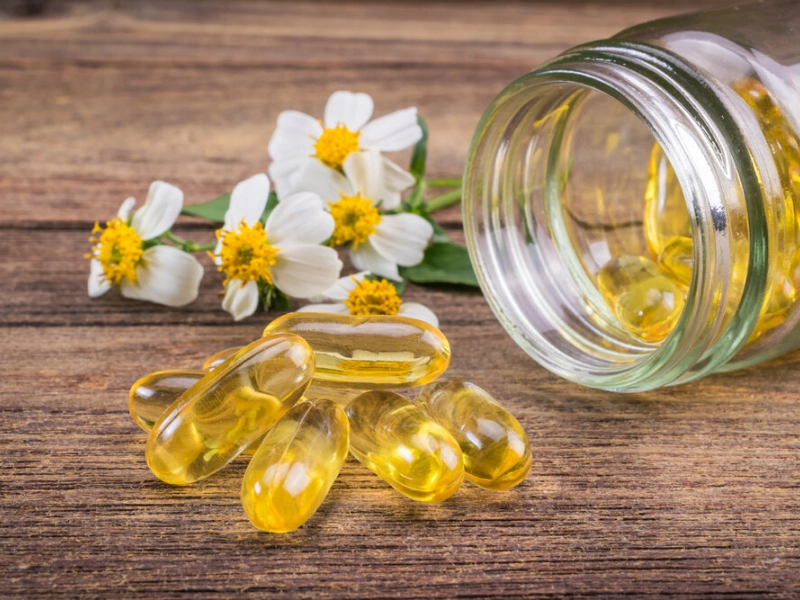
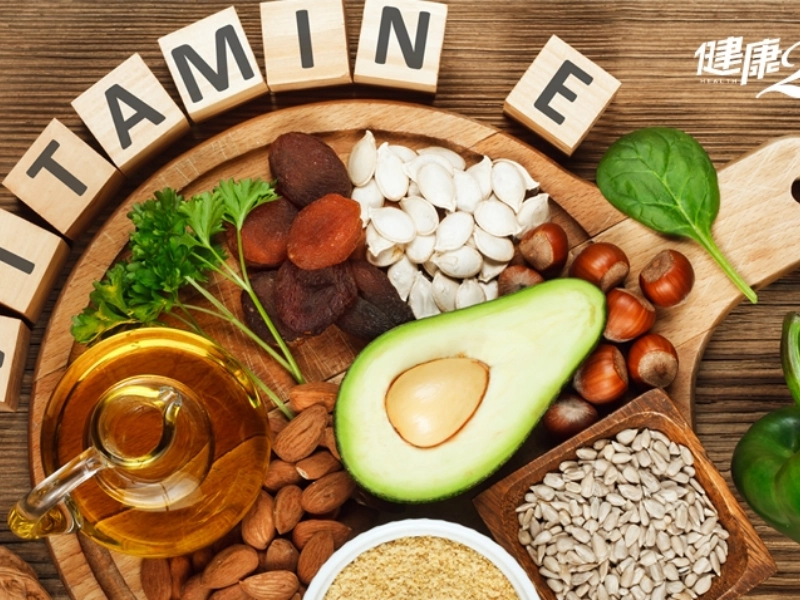 The natural reaction of the immune system to damage or infection is inflammation. Although it serves a preventive function, persistent inflammation can cause heart disease, diabetes, and autoimmune conditions, among other health problems. Stressors such as chemicals, infections, or a poor diet can set off an inflammatory reaction that lasts over time in the body. Long-term health problems might result from tissues and organs being damaged by this persistent inflammation. Developing sensible plans for controlling inflammation depends on an awareness of the part antioxidants such as vitamin E play in altering this response.
3. Vitamin E's antioxidant actions
The natural reaction of the immune system to damage or infection is inflammation. Although it serves a preventive function, persistent inflammation can cause heart disease, diabetes, and autoimmune conditions, among other health problems. Stressors such as chemicals, infections, or a poor diet can set off an inflammatory reaction that lasts over time in the body. Long-term health problems might result from tissues and organs being damaged by this persistent inflammation. Developing sensible plans for controlling inflammation depends on an awareness of the part antioxidants such as vitamin E play in altering this response.
3. Vitamin E's antioxidant actions
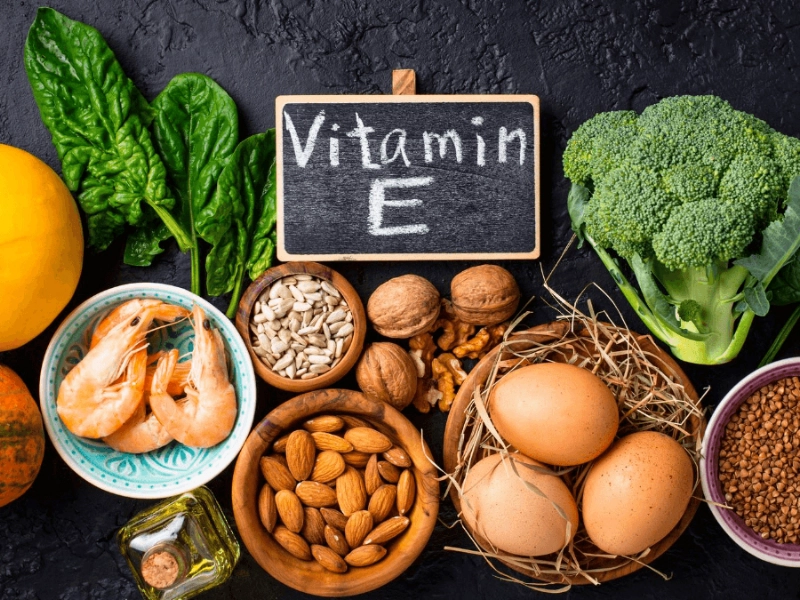 Vitamin E mostly serves as an antioxidant, which is its main purpose. Antioxidants neutralize free radicals, unstable chemicals that could damage cells oxidatively. Since this oxidative stress can set off inflammatory pathways in the body, it is intimately related to inflammation. Vitamin E lessens oxidative stress by scavenging free radicals, so perhaps decreasing inflammation levels. For those who run the danger of chronic inflammatory diseases especially, this protective effect can be quite helpful.
4. Vitamin E and Immunological Action
Vitamin E mostly serves as an antioxidant, which is its main purpose. Antioxidants neutralize free radicals, unstable chemicals that could damage cells oxidatively. Since this oxidative stress can set off inflammatory pathways in the body, it is intimately related to inflammation. Vitamin E lessens oxidative stress by scavenging free radicals, so perhaps decreasing inflammation levels. For those who run the danger of chronic inflammatory diseases especially, this protective effect can be quite helpful.
4. Vitamin E and Immunological Action
 Controlling inflammation depends on a well-running immune system. By improving the functioning of immune cells, including T cells and B cells, vitamin E is essential in sustaining immunological function. Mounting a strong immune reaction to infections and other pressures depends on these cells. Enough vitamin E can help to guarantee that the immune system runs as it should, hence perhaps lowering the chance of too strong inflammation and linked disorders.
5. Provider of Vitamin E
Controlling inflammation depends on a well-running immune system. By improving the functioning of immune cells, including T cells and B cells, vitamin E is essential in sustaining immunological function. Mounting a strong immune reaction to infections and other pressures depends on these cells. Enough vitamin E can help to guarantee that the immune system runs as it should, hence perhaps lowering the chance of too strong inflammation and linked disorders.
5. Provider of Vitamin E
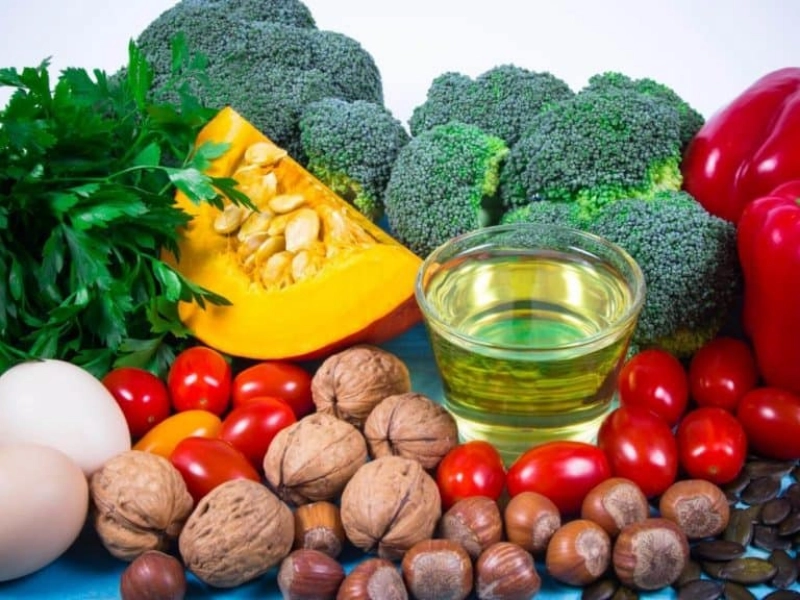 Given that vitamin E is available in many foods, including some really simple meals, including it in your diet is rather simple. Among the finest sources are nuts (like almonds and hazelnuts), seeds (such as sunflower seeds), vegetable oils (such as wheat germ and sunflower oil), and leafy green vegetables (such as spinach and broccoli). Furthermore, high in vitamin E are fortified meals such as cereals and juices. Maintaining enough vitamin E levels via a balanced diet high in these foods will boost its anti-inflammatory properties.
6.Research on Inflammation and Vitamin E
Given that vitamin E is available in many foods, including some really simple meals, including it in your diet is rather simple. Among the finest sources are nuts (like almonds and hazelnuts), seeds (such as sunflower seeds), vegetable oils (such as wheat germ and sunflower oil), and leafy green vegetables (such as spinach and broccoli). Furthermore, high in vitamin E are fortified meals such as cereals and juices. Maintaining enough vitamin E levels via a balanced diet high in these foods will boost its anti-inflammatory properties.
6.Research on Inflammation and Vitamin E
 Many studies have looked at how vitamin E relates to inflammation. Studies on vitamin E supplementation have found that it helps lower body inflammatory indicators. For example, some studies have found that vitamin E might reduce C-reactive protein (CRP), a sign of inflammation and cardiovascular risk. Other studies underline the therapeutic potential of vitamin E in controlling inflammatory diseases such as asthma and arthritis, therefore addressing their possible advantages.
7. Vitamin E: Management of Chronic Illness
Many studies have looked at how vitamin E relates to inflammation. Studies on vitamin E supplementation have found that it helps lower body inflammatory indicators. For example, some studies have found that vitamin E might reduce C-reactive protein (CRP), a sign of inflammation and cardiovascular risk. Other studies underline the therapeutic potential of vitamin E in controlling inflammatory diseases such as asthma and arthritis, therefore addressing their possible advantages.
7. Vitamin E: Management of Chronic Illness
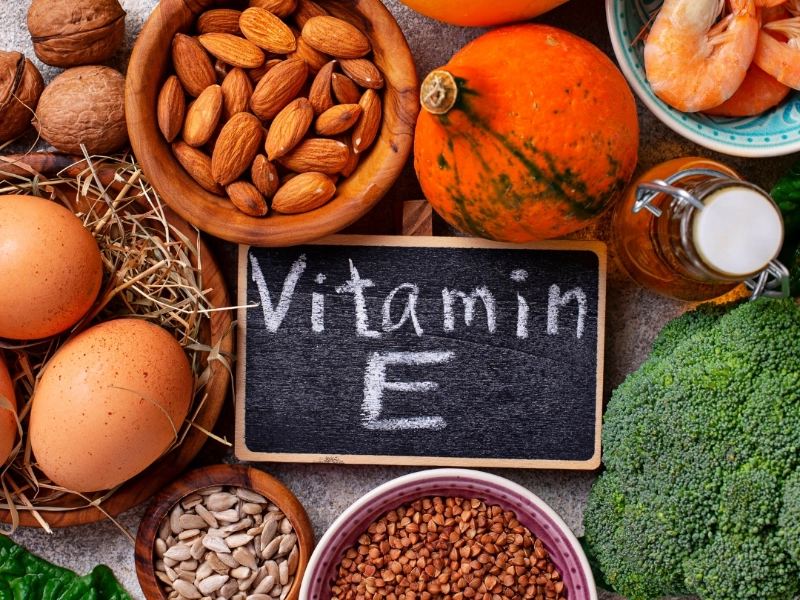 Many times, chronic inflammation defines chronic diseases, including heart disease, diabetes, and neurological disorders. The anti-inflammatory qualities of vitamin E could help to prevent and control several disorders. For instance, some research indicates that by lowering inflammation in blood vessels, vitamin E supplements can help to enhance cardiovascular health. Its neuroprotective properties could also help to reduce cognitive deterioration connected with inflammation. These results highlight the need for vitamin E in sustaining long-term health.
8. Possible hazards and thoughtfulness
Many times, chronic inflammation defines chronic diseases, including heart disease, diabetes, and neurological disorders. The anti-inflammatory qualities of vitamin E could help to prevent and control several disorders. For instance, some research indicates that by lowering inflammation in blood vessels, vitamin E supplements can help to enhance cardiovascular health. Its neuroprotective properties could also help to reduce cognitive deterioration connected with inflammation. These results highlight the need for vitamin E in sustaining long-term health.
8. Possible hazards and thoughtfulness
 Although most people agree that vitamin E is safe when taken from food sources, one should approach supplements carefully. High doses of vitamin E pills can cause side effects, including interactions with some drugs, such as blood thinners, and a higher risk of bleeding. Before beginning any supplement program, especially for those with pre-existing medical disorders or those on drugs, one should see a healthcare provider.
9. The Nutrient Synergy
Although most people agree that vitamin E is safe when taken from food sources, one should approach supplements carefully. High doses of vitamin E pills can cause side effects, including interactions with some drugs, such as blood thinners, and a higher risk of bleeding. Before beginning any supplement program, especially for those with pre-existing medical disorders or those on drugs, one should see a healthcare provider.
9. The Nutrient Synergy
 Vitamin E is not working alone; its anti-inflammatory properties can be improved in concert with other nutrients. For example, together with many minerals, vitamins C and A complement vitamin E to offer complete antioxidant protection and immune function support. A well-balanced diet with a range of minerals and vitamins will maximize the body's capacity to fight inflammation and advance general health.
10. Anti-inflammatory properties of vitamin E summarized
Vitamin E is not working alone; its anti-inflammatory properties can be improved in concert with other nutrients. For example, together with many minerals, vitamins C and A complement vitamin E to offer complete antioxidant protection and immune function support. A well-balanced diet with a range of minerals and vitamins will maximize the body's capacity to fight inflammation and advance general health.
10. Anti-inflammatory properties of vitamin E summarized
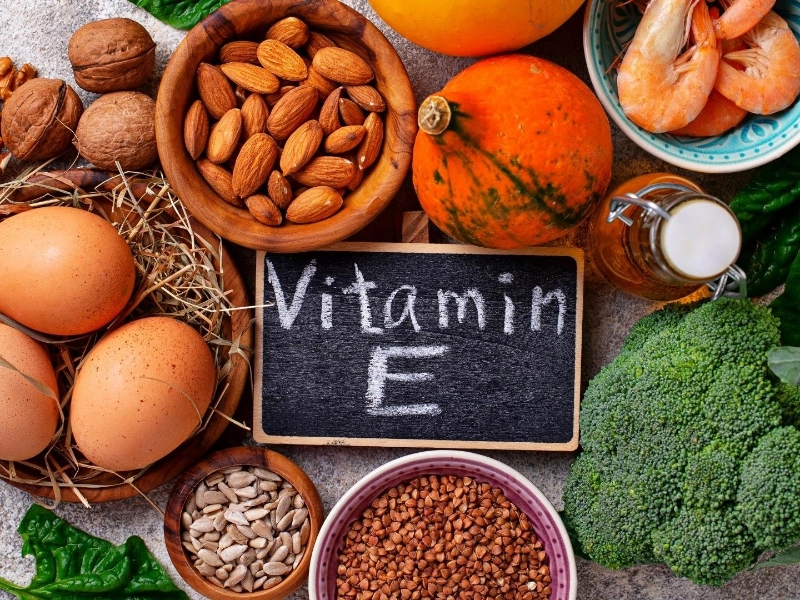 Strong antioxidant with great anti-inflammatory action, vitamin E helps guard against linked health problems, including chronic inflammation. Maintaining general health depends critically on vitamin E's reduction of oxidative stress, support of the immune system, and maybe lowering of inflammatory indicators. Including foods high in vitamin E in your diet can improve your health and help control chronic inflammatory diseases. Research keeps revealing the advantages of this vital nutrient; hence, its relevance in enhancing health and well-being becomes more evident.
Strong antioxidant with great anti-inflammatory action, vitamin E helps guard against linked health problems, including chronic inflammation. Maintaining general health depends critically on vitamin E's reduction of oxidative stress, support of the immune system, and maybe lowering of inflammatory indicators. Including foods high in vitamin E in your diet can improve your health and help control chronic inflammatory diseases. Research keeps revealing the advantages of this vital nutrient; hence, its relevance in enhancing health and well-being becomes more evident.